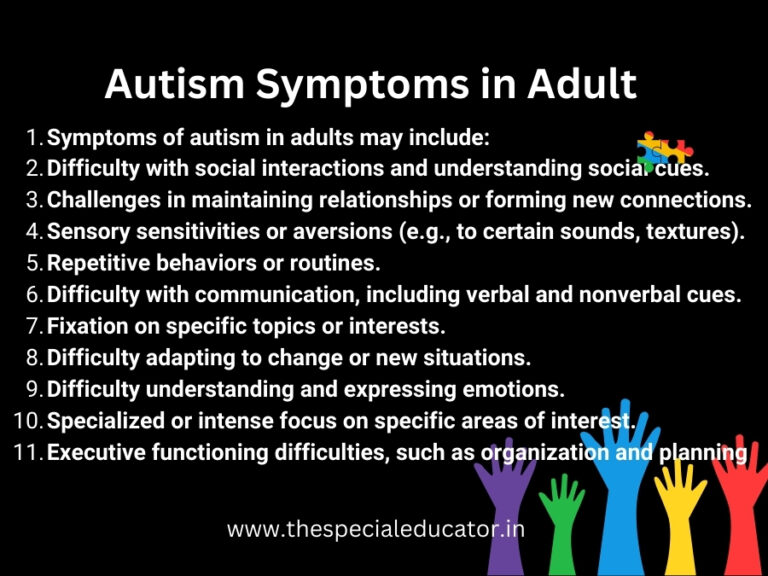Symptoms of Autism
Autism spectrum disorder (ASD) encompasses a wide range of symptoms, which can vary greatly from person to person. However, some common symptoms and behaviors associated with autism include:
- Social Challenges:
- Difficulty understanding social cues and nonverbal communication, such as facial expressions, gestures, and tone of voice.
- Difficulty forming and maintaining relationships, including making friends and engaging in reciprocal conversation.
- Limited interest in sharing experiences or emotions with others.
- Communication Difficulties:
- Delayed or absent speech development.
- Difficulty initiating or sustaining conversations.
- Repetitive or unusual use of language, such as echolalia (repeating words or phrases) or using language in a literal manner.
- Difficulty understanding abstract concepts or figurative language, such as idioms and metaphors.
- Repetitive Behaviors:
- Engaging in repetitive movements, such as hand-flapping, rocking, spinning, or pacing.
- Insistence on sameness or rigid adherence to routines and rituals.
- Fixation on specific interests or topics, often to the exclusion of other activities or conversations.
- Sensory Sensitivities:
- Heightened sensitivity or aversion to sensory stimuli such as lights, sounds, textures, or smells.
- Overwhelm or discomfort in environments with sensory overload, such as crowded places or loud noises.
- Seeking sensory stimulation, such as repeatedly touching objects or seeking certain textures.
- Difficulty with Flexibility and Change:
- Resistance to changes in routines or unexpected transitions.
- Difficulty adapting to new situations or environments.
- Emotional distress or meltdowns in response to changes or unexpected events.
- Unusual Behaviors or Movements:
- Unusual motor behaviors, such as hand-flapping, spinning, or rocking.
- Unusual posture or gait.
- Unusual attachment to objects or fascination with parts of objects.
It’s important to note that while these symptoms are common in individuals with autism, not every person with autism will exhibit all of these behaviors, and the severity can vary widely. Additionally, individuals with autism may also have strengths and abilities in other areas, such as visual thinking, attention to detail, or problem-solving skills. Early identification and intervention can help individuals with autism develop skills and cope with challenges, leading to improved outcomes and quality of life.



